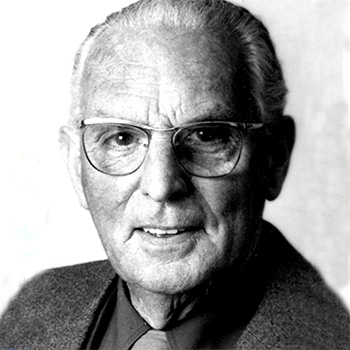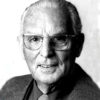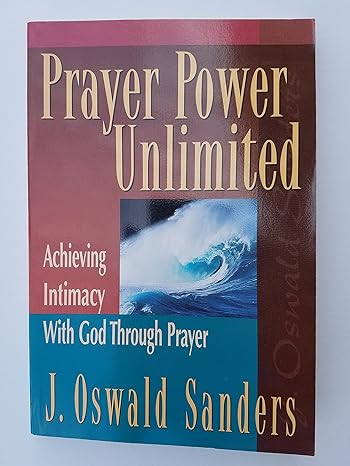Back to series


Worship & Adoration
Click here to open a Print - Friendly PDF
Reprinted by permission by J. Oswald Sanders from his book Prayer Power Unlimited
| A notable lesson in prayer was learned by the author when he read that in prayer there are at least five elements that should be present in a well-balanced prayer life. In a sense, prayer cannot be analyzed, since it is a unity and the outpouring of the single life of the one who prays. Yet in another sense, it can be divided into its constituent elements.
“The fact that [prayer] is worship, and the further fact that worship may be expressed in various forms,” wrote H. W. Frost, “makes analysis possible….Prayer is indeed one. But also it is multiform.”1 The five enumerated elements are: worship, or adoration; thanksgiving; confession; petition; and intercession. This concept opened a new world of prayer, for hitherto his prayers had been almost entirely petition. Now the prayer life embraces whole new areas of spiritual experience. Our Lord’s immediate answer to the request of His disciples, “Lord, teach us to pray,” was, “When you pray, say: ‘Father’” (Luke 11:2). In other words, prayer begins with God. The pattern prayer He gave them was halfway completed before He prayed for personal needs. The concerns and interests of God came first.
Dr. R. A. Torrey, who was God’s instrument to bring revival to many parts of the world, testified that an utter transformation came into his experience when he learned not only to pray and return thanks, but to worship—asking nothing from God, seeking nothing from Him, occupied with Himself, and satisfied with Himself. The idea of worship is common to the whole human race. But as generally used, the word worship seldom conveys its full scriptural content. It means “to bow down or prostrate oneself.” Worship is the adoring contemplation of God as He has revealed Himself in Christ and in the Scriptures. It is the act of paying honor and reverence to God. When we pray “hallowed be Thy name,” we are worshipping Him. F. W. Faber caught the sense of the word in these lines: How wonderful, how beautiful, the sight of Thee must be, The Old English form of the word, worthship, gives an interesting sidelight on its meaning, implying worthiness on the part of the one who receives the honor. This is reflected in the apocalyptic ascription of praise to Christ: “Worthy is the Lamb that was slain to receive... honor and glory and blessing” (Rev. 5:12). Worship flows from love, and where there is little love there will be little worship. But there can be an element of selfishness even in love. We can and should worship God in gratitude for what He has done for us, but it reaches a higher level when we worship Him simply for what He is, for the perfections and excellences of His own being. “I have known men,” said Thomas Goodwin, “who came to God for nothing else but just to come to Him, they so loved Him. They scorned to soil Him and themselves with any other errand than just purely to be alone with Him in His presence.”2 Worship, then, is the loving ascription of praise to God for what He is, both in Himself and in His ways. It is the bowing of the innermost spirit in deep humility and reverence before Him. When Scipio Africanus returned to Rome after a resounding victory, he rode in triumph, followed by his captives. As he went, he scattered the largess of the victor to the crowds that lined the way. Some were stirred to gratitude by his liberality; some because he had rolled away from their homes the fear of the invading army; still others, forgetful of their personal benefits, praised the qualities of the victor—his courage, resourcefulness, liberality. It was in this last group that the highest element of worship was present. Worship can be wordless. “My soul, be thou silent unto God,” said the psalmist (Psalm 62:5, ASV, marg.). But worship must be “in truth” (John 4:24, KJV), that is, free from mere profession or pretense. Brother Lawrence, that saint of the kitchen, learned that to worship God in truth is to acknowledge Him to be what He is, and to acknowledge ourselves to be what we are. How Worship is Stimulated
God has granted a partial revelation of Himself in the wonders of nature. “The heavens declare the glory of God” (Psalm 19:1, KJV). We learn there of His almighty power, His transcendent beauty, His unsearchable wisdom. But nature does not reveal Him as a God of love and mercy. Only “in the face of Jesus Christ” will we see the full blaze of the divine glory (2 Cor. 4:6, KJV). All the fullness of God dwells in Him in bodily form (Col. 1:19), and no worship that ignores Christ is acceptable to God, for it is through Christ alone that we have access to the Father. In Thee, most perfectly expressed, This raises a second question: How can I know Christ, who alone reveals God? The Scriptures are rich in material to feed and stimulate worship and adoration—especially the Psalms, which are God’s inspired prayer book. As you read them, turn them into prayer. Vast tracts of truth await our exploration. Great themes abound—God’s holiness, sovereignty, truth, wisdom, faithfulness, patience, love, mercy—all of which will call forth our worship. The use of a good hymnbook in private devotions can be a great aid to worship. Not all of us find it easy to express our deepest feelings or to utter the love of our hearts to God. We are very conscious of the poverty of our thoughts of God and the inadequacy of the words in which we express them. But we can appropriate the outpouring of worship and praise of men and women whom the Spirit has gifted to express these thoughts in verse. Try using a hymnbook regularly. We should guard against the idea that worship is confined to the realm of thought, for Scripture links worship with service. During the temptation in the wilderness, our Lord quoted the Old Testament: “You shall worship the Lord your God, and serve Him only” (Matt 4:10, italics added; cf. Deut 6:13, marg.). We should not separate what God has joined. Worship is no substitute for service, nor is service a substitute for worship. True worship will inevitably find expression in loving, sacrificial service. |
|||
|
PRAYER |
Recommended Resource:
The supreme importance of prayer is tacitly admitted by most evangelical Christians. It is accepted as an article of faith. And yet there are few areas of the Christian life in which there are more regretful confessions of failure and disappointment. The author does not pose as an authority on the subject—only a fellow student in the school of prayer; he is very conscious of the heights yet to be scaled.

J. Oswald Sanders
Author J. Oswald Sanders (1902 - 1992) attended the Bible Training Institute in Auckland and joined its staff in 1926. Sanders served as an instructor and administrator at the Bible College of New Zealand. He became general director of the China Inland Mission and led the reorganization of the CIM into the Overseas Missionary Fellowship. He was instrumental in beginning many new missions projects throughout East Asia. Upon his retirement Sanders wrote prolifically, with many of his over 40 books. One of Sander's most notable works was Heresies Ancient and Modern, later published as Cults and Isms (1962). COPYRIGHT: This publication is published by C.S. Lewis Institute; 8001 Braddock Road, Suite 301; Springfield, VA 22151. Portions of the publication may be reproduced for noncommercial, local church or ministry use without prior permission. Electronic copies of the PDF files may be duplicated and transmitted via e-mail for personal and church use. Articles may not be modified without prior written permission of the Institute. For questions, contact the Institute: 703.914.5602 or email us.
COPYRIGHT: This publication is published by C.S. Lewis Institute; 8001 Braddock Road, Suite 301; Springfield, VA 22151. Portions of the publication may be reproduced for noncommercial, local church or ministry use without prior permission. Electronic copies of the PDF files may be duplicated and transmitted via e-mail for personal and church use. Articles may not be modified without prior written permission of the Institute. For questions, contact the Institute: 703.914.5602 or email us.
-
Recent Podcasts
Ralph Waldo Emerson’s Philosophy and Influence
by David George Moore on July 26, 2024Ralph Waldo Emerson was a gifted nineteenth century...Read More
-
The Side B Stories – Nate Sala’s Story
by Jana Harmon, Nate Sala on July 19, 2024
-
Terrorism Through the Eyes of Faith
by Dennis Hollinger on July 12, 2024
-
Recent Publications
Hasn’t Science Proven That Belief in God Is an Outdated Superstition?
by Sharon Dirckx on July 1, 2024Many assume that scientific practice and belief in...Read More
-
Has the Bible Been Corrupted as Some Muslims Claim?
by Andy Bannister on June 1, 2024
-
Seeing Jesus Through the Eyes of Women
by Rebecca McLaughlin on May 15, 2024
0
All Booked
0.00
All Booked
0.00
All Booked
22194
C.S. Lewis’s The Abolition of Man Live Online Small Group 8:00 PM ET
https://www.cslewisinstitute.org/?event=c-s-lewiss-the-abolition-of-man-study-course&event_date=2024-10-02®=1
https://www.paypal.com/cgi-bin/webscr
2024-10-02

Next coming event
Days
Hours
Minutes
Seconds
C.S. Lewis’s The Abolition of Man Live Online Small Group 8:00 PM ET
On October 2, 2024 at 8:00 pmTags
Speakers

J. Oswald Sanders
Author
Team Members



 This is a supremely important lesson. If God is not given the chief place in our praying, our prayers will be anemic. When our thoughts begin with Him, love is kindled and faith stimulated. So our first lesson will be concerned with Him. We shall consider worship, or adoration, for this is involved in the petition “hallowed be Thy name” (v. 2).
This is a supremely important lesson. If God is not given the chief place in our praying, our prayers will be anemic. When our thoughts begin with Him, love is kindled and faith stimulated. So our first lesson will be concerned with Him. We shall consider worship, or adoration, for this is involved in the petition “hallowed be Thy name” (v. 2). The scholar in the school of prayer may feel that God seems far away and unreal, so that attempts to worship Him seem a farce. The question arises, How can I know God better so that I can worship Him more worthily?
The scholar in the school of prayer may feel that God seems far away and unreal, so that attempts to worship Him seem a farce. The question arises, How can I know God better so that I can worship Him more worthily?


